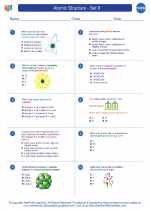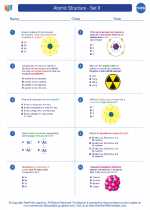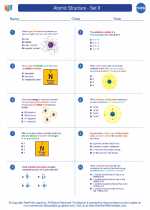Circadian Rhythm
The circadian rhythm is a natural, internal process that regulates the sleep-wake cycle and repeats roughly every 24 hours. It is also known as the body's internal clock. This rhythm is controlled by the brain, particularly the hypothalamus, and is influenced by external cues such as light and temperature.
Our circadian rhythm plays a crucial role in regulating various physiological and behavioral processes, including hormone production, metabolism, and cognitive function. Disruptions to the circadian rhythm, such as shift work or jet lag, can have negative effects on health and well-being.
Study Guide for Circadian Rhythm
- Definition: What is the circadian rhythm and how does it affect our daily lives?
- Regulation: How is the circadian rhythm regulated by the brain and influenced by external cues?
- Functions: Discuss the physiological and behavioral processes that are influenced by the circadian rhythm.
- Disruptions: What are the potential negative effects of disruptions to the circadian rhythm, and how can they be minimized?
- Research: Explore current research on the circadian rhythm and its implications for health and medical treatment.
Understanding the circadian rhythm is essential for comprehending the interconnectedness of our biological processes and maintaining a healthy lifestyle. It also has implications for various fields, including medicine, psychology, and environmental science.
.◂Chemistry Worksheets and Study Guides High School. Atomic Structure - Set II

 Worksheet/Answer key
Worksheet/Answer key
 Worksheet/Answer key
Worksheet/Answer key
